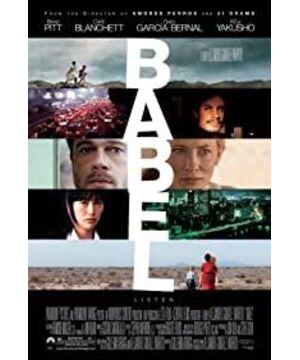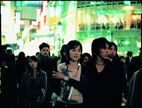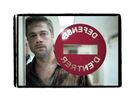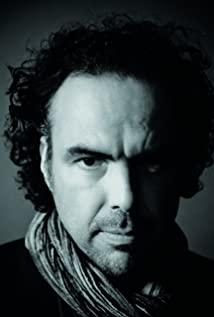I really want to watch it when I see the trailer. It's Brad Pitt again and Cate Blanchett. The picture production also looks very beautiful. But the film reviews I saw later were not good. So he hesitated after the movie came out. Fortunately, ZM classmates have never been too cold about film reviews, so we ran to watch it last Friday the day the movie was first released.
After reading it, I was very pleased, but fortunately I came. I like it very much.
This movie has a huge amount of information and rich layers. After reading it, there will be a long aftertaste. There are three distinct locations in the movie—Tokyo, Morocco, Mexico, and the border of California—there are stories about three different families, all of which are covered by the fourth story, which is the main line of the movie, the couple Brad Pitt and Cate Blanchett. The stories are connected. Four stories, four groups of characters, connected by a shotgun. What is rare is that the four families and four groups of characters are all portrayed lifelike, without a flat character. The editing and telling of the four stories are well organized. Although it lasted two and a half hours, I didn't think it was too long at all. Three locations: poor Moroccan loess high slopes, small town characters on the Mexican border, modern and modern Tokyo, all have strong personalities and characteristics.
Some film critics said that the undercurrent of this movie is the relationship between parents and children. In fact, that is only one level, another level is the relationship between the police and civilians in each locality. Of course, there is another aspect as shown in the title of the movie. Regarding the issue of communication, people have misunderstandings due to their inability or unwillingness to communicate (Brad and Cate, Chieko and her father, Amelia, Santiago and the border police ), and even diplomatic frictions between countries (the United States and Morocco). It is actually very interesting to see the story between the police and the civilians. The violence and unreasonableness of the Moroccan police against the civilians may be acceptable, because there must be a developing country in everyone’s mind; but the violence against the Mexicans by the U.S. border police makes people feel unreasonable. The hair is horrified. In contrast, it seems that only the Japanese police are worthy of being the representative of modern civilization. In the end, the kind policeman's pure compassion for Chieko probably saved her life.
This movie seems to have annotated the story of the Tower of Babel earlier, that is, language is not the origin of all misunderstandings and pain. In a small Moroccan village, the care and kindness of the Moroccan villagers who do not speak the language to Brad and Cate are expressed in silence. On the contrary, the tourists from various countries on the coaches who came with them without any language problems eventually abandon them because of selfishness and fear. Let’s talk about the little Japanese girl Chieko. On the surface, she is unable to communicate with other peers because of her deafness and muteness. But more often, the discrimination she suffers is actually derived from the deep attitude of the Eastern people towards the disabled. What she needs It's just a little kind and sincere. As the young policeman did towards the end of the film.
The movie is full and authentic. The conflicts and affection among the little shepherd brothers on the Moroccan hillside, although poor, still have their own fun. Wedding crowd in a small Mexican village. Tokyo youth nightlife. All languages and dialogues have unexpected surprises. Especially since I have seen a lot of lines from Japanese idol dramas, let’s look at the dialogues among Japanese girls. The kind of frenzied and even silly swearing is fresh, but it feels very real. The reality that you touch is full of flesh and blood.
All aspects are well taken care of. Director Alejandro González Iñárritu has a great skill.
The New Yorker magazine critic David Denby doesn't like Babel, he said:
he creates savagely beautiful and heartbreaking images; he gets fearless performances out of his actors; he edits with the sharpest razor in any computer in Hollywood; and he abuses his audience with a humorless fatalism and a piling up of calamities that borders on the ludicrous.
【Alejandro González Iñárritu】He can create wild and beautiful but heart-removing pictures, he can mobilize the most fearless performances of his actors, he There is Hollywood's most decisive editing knife, but he abuses the audience with fatalism without a sense of humor and an almost absurd disaster storm full of mountains and plains.
Strange, I feel neither fate nor absurd. Everything stated in Babel is a fact that is likely to have happened or is even happening. Maybe things in the world are not as logical and rewarding as the brave heart said. Perhaps the world itself is so full of disaster and silent goodwill. Anyway, I didn't feel any abuse. And the humorous plots in the movie actually abound. This David Denby does not seem to have the same taste as mine.
The topic of Babel is still very appropriate. Under the chaotic voice, the mood that each of us can experience is different, right?
View more about Babel reviews










